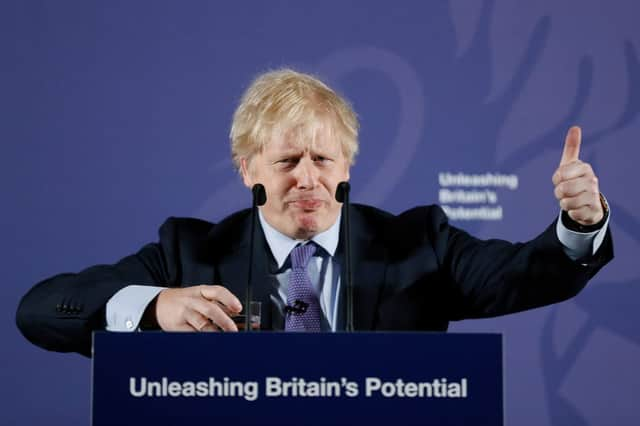Here's what the new National Living Wage is, and who gets a pay rise when it changes


A new National Living Wage to be introduced in 2020 will see low-paid workers earn nearly a thousand pounds more a year.
The new rate of pay will come in on 1 April 2020, a rise from £8.21 to £8.72 for workers over the age of 25, marking an increase of 6.2 per cent.
Advertisement
Hide AdAdvertisement
Hide AdIt means a full-time worker aged 25 or over who receives the National Living Wage will get a pay rise of £930.
The raise will also see younger workers receive a boost to the national minimum wage of between 4.6 per cent and 6.5 per cent depending on their age, with 21-24 year-olds seeing a 6.5% increase from £7.70 to £8.20 an hour.
“Hard work should always pay, but for too long, people haven’t seen the pay rises they deserve," said Prime Minister Boris Johnson.
The Prime Minister has been eager to show his government will deliver on the votes of the working classes in areas of the North East and Midlands, which voted Conservative for the first time on 12 December.
Advertisement
Hide AdAdvertisement
Hide Ad“Our government will put a stop to that, giving nearly three million people from Edinburgh to Eastbourne a well-earned pay rise, including the biggest ever cash boost to the National Living Wage.”
Why is the National Living Wage being raised?
The rise follows the Conservatives’ promise during its annual conference in September to increase the National Living Wage to £10.50 an hour over the next five years if “economic conditions allow”.
The Tories had also written the pledge into their manifesto, which would see an individual’s net earnings rise by £1,900 over five years.
The increased rates were recommended by the Low Pay Commission, an independent body that advises the Government on the living wage.
Advertisement
Hide AdAdvertisement
Hide Ad“We want to end low pay and put more money in the pockets of hard-working families," Chancellor Sajid Javid said.
"This latest rise will mean that since we introduced the National Living Wage in 2016, the lowest paid will have had a wage increase of more than £3,600.”
Frances O’Grady, the leader of the Trades Union Congress, said: “This is a long-planned raise, but it’s also long overdue.
"Workers are still not getting a fair share of the wealth they create. And in-work poverty is soaring as millions of families struggle to make ends meet.”
The pay rises in full:
Advertisement
Hide AdAdvertisement
Hide AdThe National Living Wage (for over 25-year-olds) will increase 6.2% from £8.21 to £8.72.
The National Minimum Wage will rise across all age groups, including:
A 6.5% increase from £7.70 to £8.20 for 21-24-year-oldsA 4.9% increase from £6.15 to £6.45 for 18-20-year-oldsA 4.6% increase from £4.35 to £4.55 for Under-18sA 6.4% increase from £3.90 to £4.15 for Apprentices
What's the difference between the National Living Wage and Minimum Wage?
The National Living Wage was introduced by the government in 2016 and billed as a higher minimum wage rate for workers aged 25 and over. This pay rate is legally binding.
Advertisement
Hide AdAdvertisement
Hide AdThe current National Living Wage is £8.21, having risen from £7.83.
The minimum wage is a wage rate released by the government is a negotiated settlement based on recommendations from trade unions and and businesses.
The real living wage is an independently calculated wage rate which aims to be higher than the cost of living in the UK and London.
Calculated by the Living Wage Foundation it takes into account rental costs, council tax, shopping costs, and travel costs.
Advertisement
Hide AdAdvertisement
Hide AdCompanies are not legally obliged to sign up to the real living wage, but can become and accredited real living wage employer if they choose to do so.
The current real living wage for people living in London is £10.75, £1.45 more than the real living wage for the rest of the UK.
Roughly 4,700 employers are real living wage accredited, including Oxfam, KPMG, Liverpool Football Club, Nestle, Burberry, Aviva, Ikea, and Linklaters.